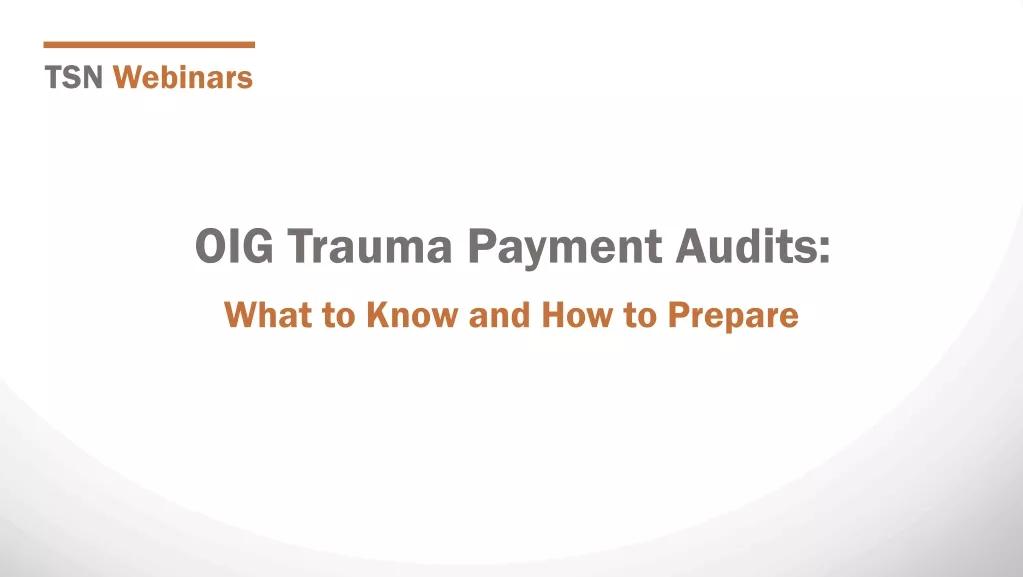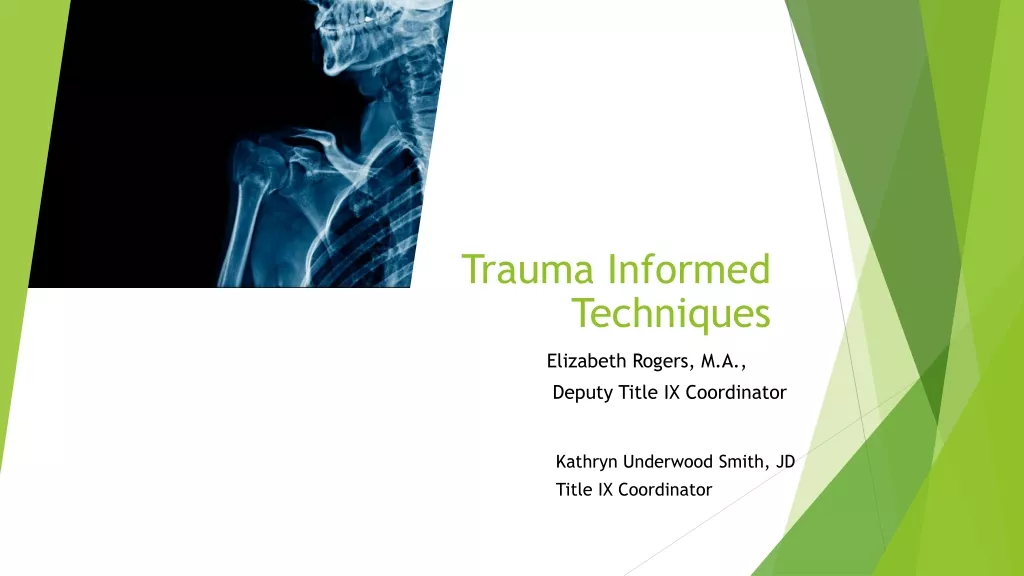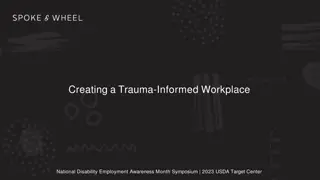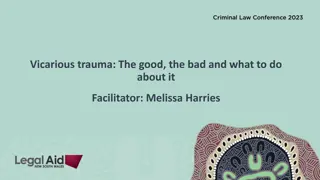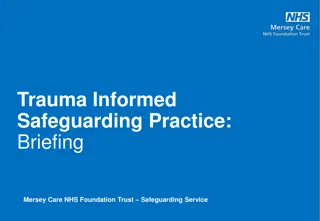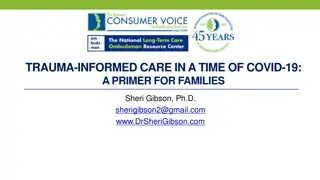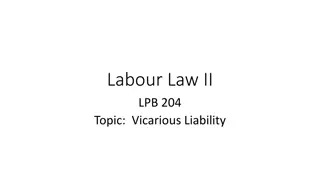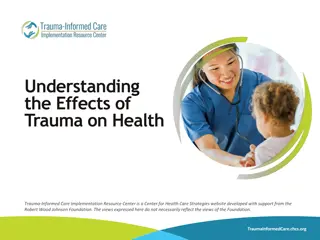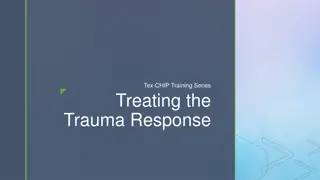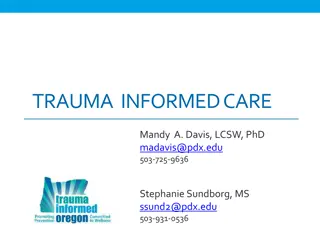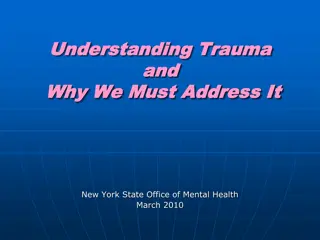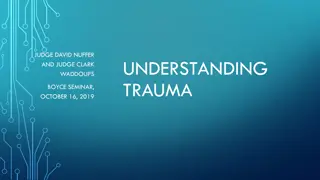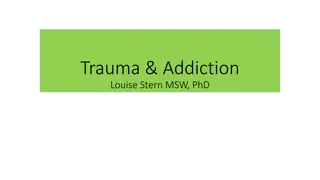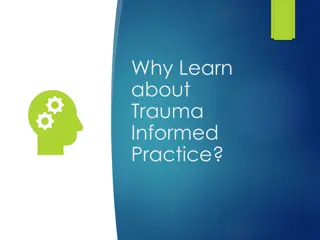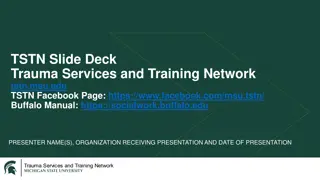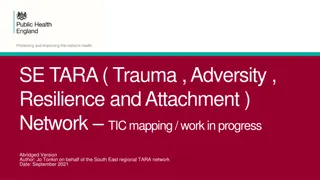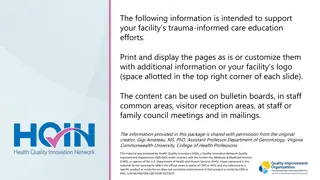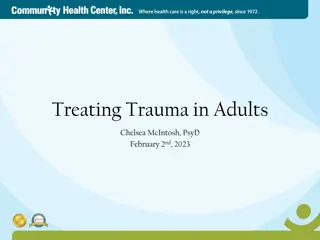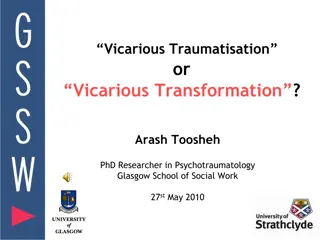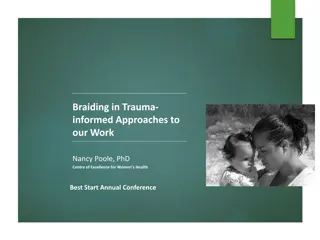Vicarious Trauma and Self-Care Strategies
The impact of vicarious trauma on individuals and effective self-care strategies. Learn about symptoms, differences from burnout, and ways to protect your well-being. Dive into research on assessment and outcomes, identifying contributors to trauma work, and fostering a supportive environment. Engage in discussions and gain insights from peers in small-group settings. Discover the importance of recognizing immediate and long-term effects of vicarious trauma.
Download Presentation

Please find below an Image/Link to download the presentation.
The content on the website is provided AS IS for your information and personal use only. It may not be sold, licensed, or shared on other websites without obtaining consent from the author.If you encounter any issues during the download, it is possible that the publisher has removed the file from their server.
You are allowed to download the files provided on this website for personal or commercial use, subject to the condition that they are used lawfully. All files are the property of their respective owners.
The content on the website is provided AS IS for your information and personal use only. It may not be sold, licensed, or shared on other websites without obtaining consent from the author.
E N D
Presentation Transcript
- 1
Introduction Digital technologies can enhance teaching and learning and support professional development Some of the Teacher Professional Development (TPD) courses are online/blended E-learning and E-Training require self-regulated learning skills (SRL) 2 ONLINE SELF-REGULATED LEARNING OF ICT LEADERS
Revised Self Revised Self- -Regulated Learning Model Regulated Learning Model (RSRLM; Nodoushan, 2012) Motivation Engagement Forethought planning & setting goals Performance active usage of strategies Reflection retrospective thinking Monitoring self- assessment Management controlling things learner's inner desire learner's commitment ONLINE SELF-REGULATED LEARNING OF ICT LEADERS 3
Micro-learning Short-term learning activities Small pieces of information Engagement of students Learning in small pieces to avoid information overload 4 ONLINE SELF-REGULATED LEARNING OF ICT LEADERS
Research Research Question Question What characteristics of self-regulated learning do ICT leaders develop during TPD conducted through micro-learning? 1. Motivation, learner's inner desire 2. Engagement, learner's commitment 3. Forethought planning & setting goals 4. Learning strategies 5. Reflection retrospective thinking 6. Monitoring self-assessment 7. Management and control (RSRLM; Nodoushan, 2012) ONLINE SELF-REGULATED LEARNING OF ICT LEADERS 5
The The Participants Participants 174 Israeli ICT leaders involved in a National ICT program Experienced in technology-enhanced teaching School ICT coordinators-121 (69%) Regional ICT coordinators- 31 (18%) Leading teachers-22 (13%) Gender: Females- N= 132, 76% ; Males- N=42, 24% Hebrew speakers N=78, 45% and Arabic speakers N=96, 55% ONLINE SELF-REGULATED LEARNING OF ICT LEADERS 6
Instruments Instruments and Research Research C Context and Procedure Procedure- - ontext TDP- 30 hours of blended learning course for ICT Leaders 20 hours: micro- learning online activities 10 hours: face-to- face meetings ONLINE SELF-REGULATED LEARNING OF ICT LEADERS 7
8 ONLINE SELF-REGULATED LEARNING OF ICT LEADERS
Instruments Instruments and T Tools ools and and Process and Procedure Procedure- - Process An online questionnaire: multiple-choice & open-ended questions- Participants reflected on challenges and SRL strategies used during the micro-learning TPD. 13 semi-structured interviews- toexpand understanding of SRL processes and the potential of micro-learning TPD. ... / ONLINE SELF-REGULATED LEARNING OF ICT LEADERS 9
Findings Findings - - Components Components of of SRL SRL All components of RSRLM were found in the TPD program ONLINE SELF-REGULATED LEARNING OF ICT LEADERS 10
- ." . - ... " ". ONLINE SELF-REGULATED LEARNING OF ICT LEADERS 11
- , . " " , , " ". ONLINE SELF-REGULATED LEARNING OF ICT LEADERS 12
- ". , { , ,} ... ". ONLINE SELF-REGULATED LEARNING OF ICT LEADERS 13
N=232 statements -(hands-on) - ONLINE SELF-REGULATED LEARNING OF ICT LEADERS 14
Conclusions The unique TPD design outlines types of strategies (actions), cognition (thoughts), and affect (feelings), that can help to focus future practices. It helps them to develop SRL skills, strategies for successful SRL and task performance. Recommendations In order to develop SRL skills of teachers we recommend to develop similar TPD courses through a micro-learning model in a blended learning environment. ONLINE SELF-REGULATED LEARNING OF ICT LEADERS 15


